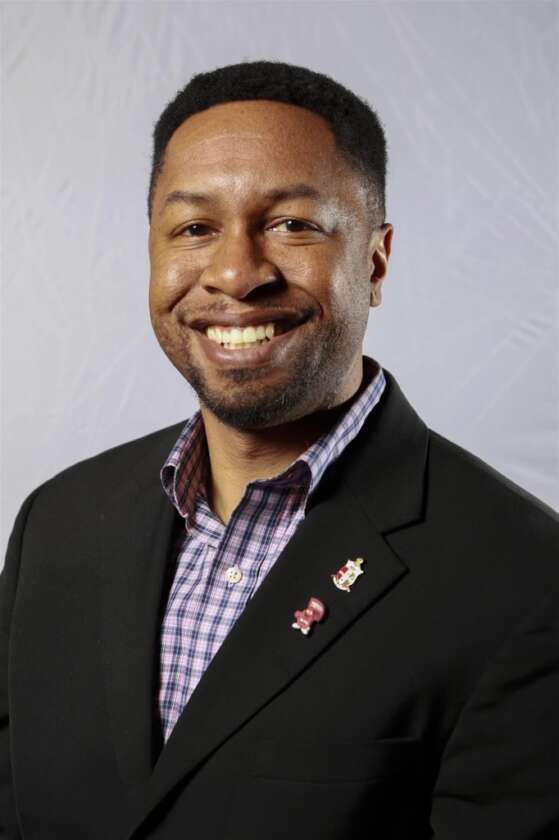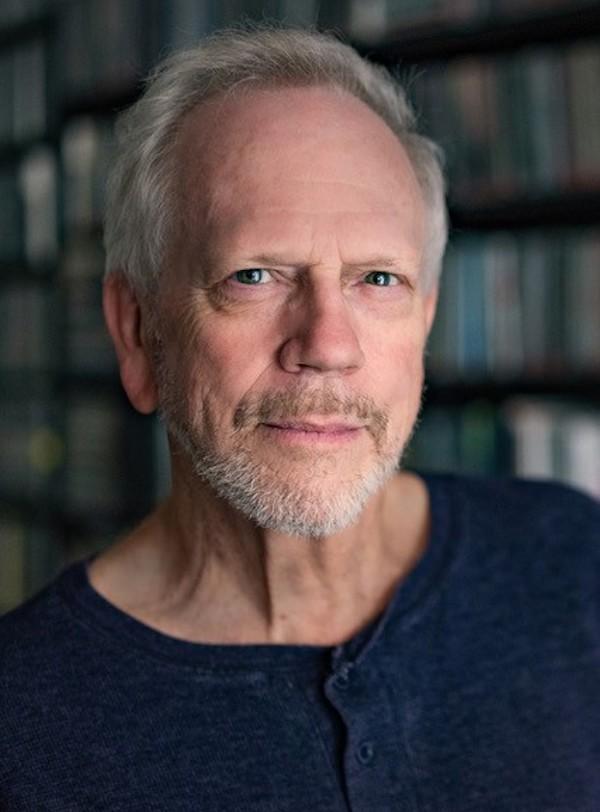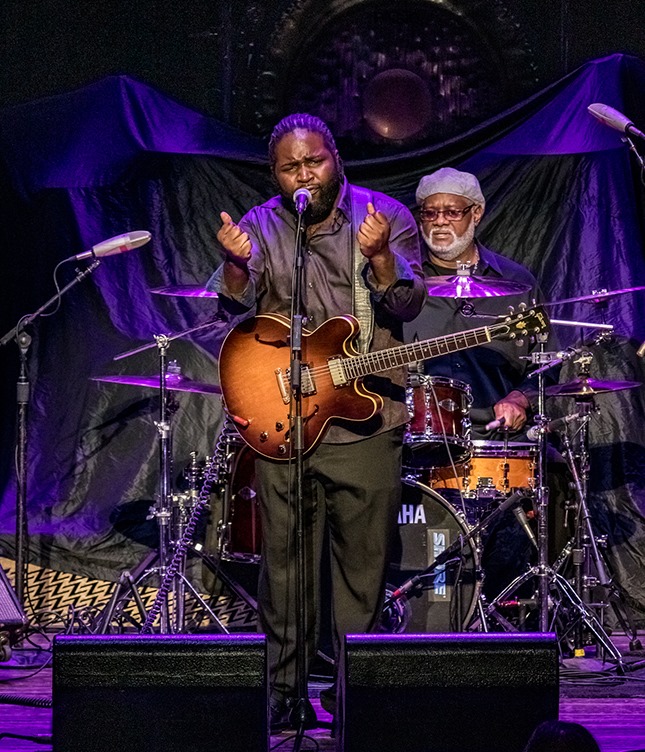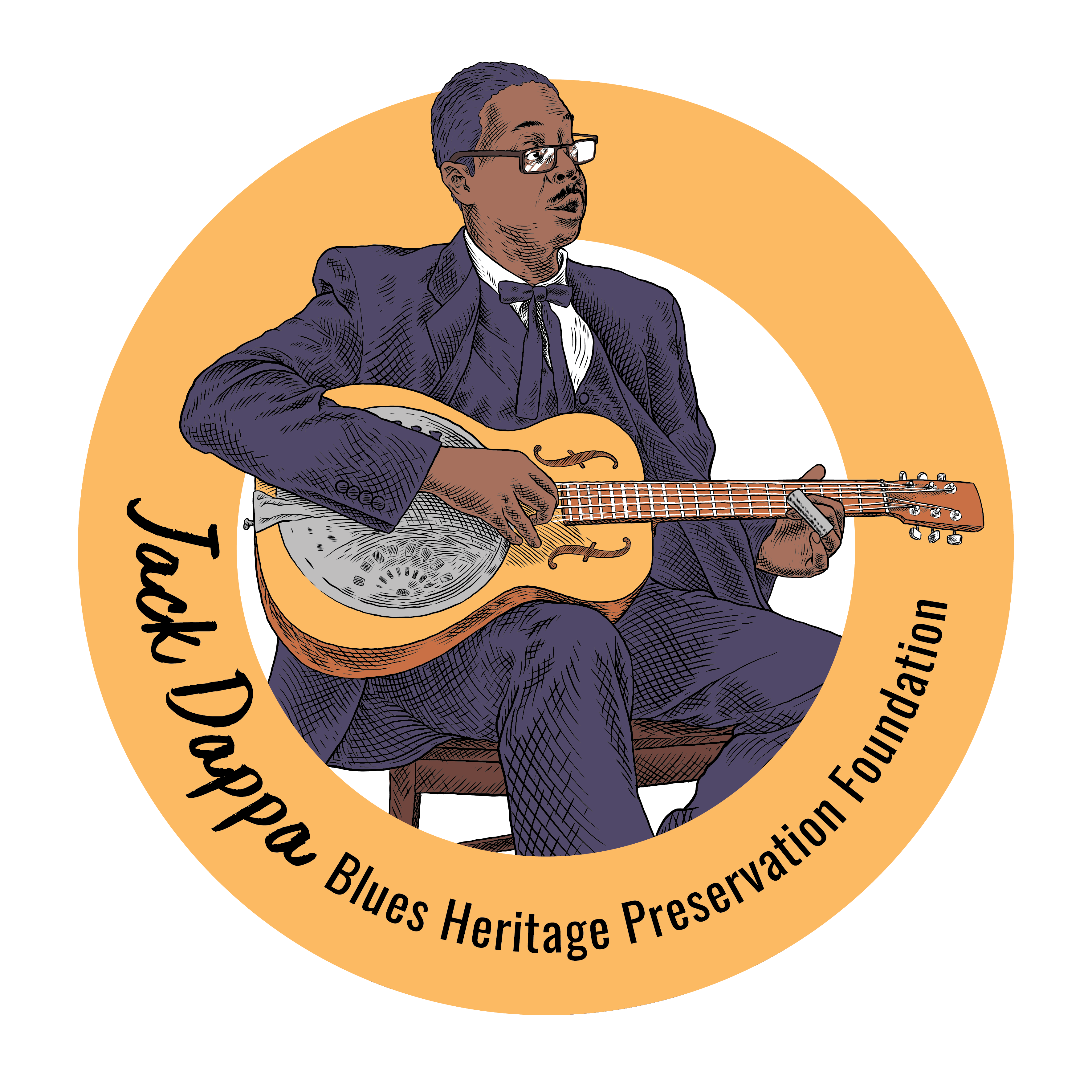Advisory Board For Jack Dappa Blues Heritage Preservation Foundation:

Ryan Dearbone is a native of Hopkinsville, KY and a 2001 graduate of Christian County High School. He’s the son of the late Alfreda Thompson. He’s a 2005 and 2014 Western Kentucky University (WKU) graduate with a Bachelors in Broadcasting and a Masters in Corporate & Organizational Communication.
Ryan worked as a Multimedia Journalist for 8 years at television stations in Bowling Green, Clarksville, TN. and Lexington, Kentucky. He has received multiple awards for his work in journalism. He has also worked in radio, print media and digital media. Currently, he is the host of the “Church With No Walls” podcast.
Ryan has also spent time as the Assistant Director of the non-profit, Community Education, in Bowling Green. Prior to his current role, he spent several years as a Philanthropy Officer at his alma mater. Currently, Ryan is an Assistant Professor of Broadcasting in the WKU School of Media & Communication.
Ryan also is the Diversity, Equity, Inclusion Educator for the Ten-Minute Trainer Network business training platform. He is also the Media Minister at State Street Baptist Church in Bowling Green, KY.
Additionally, Ryan is very busy in the Bowling Green, KY community. He currently serves as the President of the Bowling Green-Warren County NAACP, Chairman of the Lifeskills, Inc. Board of Directors, Chairperson of the Bowling Green (KY) Code Enforcement and Nuisance Board, Chairperson of the Community Education Board of Directors, Co-Faculty Advisor of the WKU Chapter of the National Association of Black Journalists and member of the NABJ Academic Task Force.
He has been honored by the Bowling Green (KY) Trailblazer Committee as a Trailblazer. Ryan’s a recipient of the Nick & Pat Kafoglis Diamond Award by the Bowling Green-Warren County NAACP. In addition, he has been recognized as a Kentucky Colonel (the highest honor a Kentuckian can receive), and was included as a member of the 2022 “40 Under 40” by Bowling Green VIP Magazine as well as being named the 2022-23 WKU Department of Communication Alumnus of the Year.
In his spare time, He’s an avid runner. He also loves spending time with his beautiful wife, Bonita and their two amazing daughters, Echo and Legacy.

Photo of Nick By Rusty Costanza, courtesy of Tulane University
Nick Spitzer is an anthropologist, folklorist, media producer and professor at Tulane University in New Orleans whose focus is American vernacular culture. His whole life has been spent documenting, broadcasting, and writing about the local, the non-official, the folkloric—the vernacular—all pointing to the vitality and innovation of American culture that is so often neglected by critics, scholars, and government.
While studying anthropology and folklore in college and graduate school, he hosted his own radio programs in Philadelphia and Austin with music and talk not heard anywhere else, in part because he drew upon the local cultures near wherever he was located. After fieldwork and landmark sound recordings in rural Afro-Creole Louisiana communities, he launched the Louisiana Folklife Program with then-Louisiana Arts Council Director Al Head (2012 National Heritage Fellow), and collaborated in the creation of the Baton Rouge Blues Festival, the Folklife Pavilion at the Louisiana World Exposition,and a long-running exhibit called The Creole State in the Louisiana State Capitol building. His work with rural and New Orleans Creole culture led to significant writings on cultural creolization, the process by which new or foreign cultures interpenetrate traditional cultures and create new elements or meanings to older forms.
Later, at the Smithsonian, Spitzer curated programs for the Festival of American Folklife and made documentaries for Radio Smithsonian. As a commentator and producer, he went on to work with ABC News’ Nightline, NPR’s All Things Considered, and Sunday Morning for CBS News. He was also artistic director for seven seasons of Folk Masters at Carnegie Hall and Wolf Trap, and the American Roots Independence Day concerts on the National Mall throughout the 1990s—all heard nationally on public radio.
In 1998, he began to broadcast his still-airing two-hour program American Routes, and has produced more than 650 programs to date. He drew on local artists from New Orleans and French Louisiana and brought traditional jazz, Cajun and Creole music, along with blues, gospel, country, Tejano, Latin and Caribbean music, roots rock, and soul to the nation each week. Folklorist and music historian John Szwed wrote, “American Routes feels like a letter from home…a home you didn’t know you had.” Cultural critic Nat Hentoff (2004 NEA Jazz Master) declared, “In the history of American radio, no series has ever come close to Nick Spitzer’s American Routes in exploring the many streams of this nation’s music.” Over the years, Spitzer has carried these streams as cultural diplomacy to audiences in Russia and China. His publications include The Mississippi Delta Ethnographic Overview, Louisiana Folklife: A Guide to the State, Public Folklore (with Robert Baron), and Blues for New Orleans: Mardi Gras and America’s Creole Soul. His film Zydeco: Creole Music and Culture in French Louisiana was seen on PBS and globally in French-speaking countries. He has produced and annotated numerous CD recordings and developed special projects such as the 13-part American Routes radio series about hurricane Katrina, “After the Storm.”
His honors include a Guggenheim, an ASCAP-Deems Taylor Award, Louisiana Humanist of the Year, and Lifetime awards from the University of Louisiana, the Louisiana Folklore Society, and the American Folklore Society. Spitzer has conducted over 1,200 interviews with musicians and artists. His life’s work of discovering, introducing, and sustaining vernacular artists is in the highest tradition and the full spirit of the NEA’s Bess Lomax Hawes National Heritage Fellowship.
Written By John Szwed, folklorist and music historian

Born St. Louis, Mo, Marquise hails from a musical family deeply rooted in the Blues. He learned how to play guitar from his grandmother Lillie. He also played with his uncle Clifford, who was a major influence in Marquise’s life. For Marquise, Blues is his heritage and way of life. He spent his early teenage years in St. Louis mentoring under the late great Blues legend, N.E.A. (National Endowment of the Arts) Heritage Fellowship recipient and Grammy Award winner Henry James Townsend. Marquise’s talents have earned him performing rights with some of America’s most notable blues performers such as blues legends B.B. King, Pinetop Perkins and David “Honeyboy” Edwards (the latter two also N.E.A. Heritage Fellows). He has also performed at dozens of festivals, and has toured all throughout Europe.
During a visit to Clarksdale, Mississippi, Marquise was introduced to Sam Lay. Like other statesmen of the Blues, Sam took an immediate liking to Marquise and took it upon himself to help give Marquise’s career a boost by insisting that Chad Kassem bring Marquise to the celebrated Blues series “Bluesmasters at the Crossroads,” which has showcased a virtual who’s-who of the Blues at Blue Heaven Studios in Salina, Kansas. Marquise was an immediate crowd favorite, and was adopted by all of the elders of the Blues in attendance that year. His obvious talent along with his deep knowledge of the Blues and vast respect for his elders made it clear Marquise had something special, and Kassem signed him to a three album deal.
Knox’s debut album MANCHILD was nominated for a Blues Music Award for Best New Artist Debut. The album was recorded when he was 16 with world reknowned guitarist Michael Burks and his band. The release received worldwide acclaim, including Living Blues’ Best Debut Artist Award and a Blues Music Award nomination for Best Debut Artist. Marquise then recorded a direct-to-disc album while in town for the next year’s Crossroads. Marquise released his second album, Here I Am, once again recorded at the legendary Blue Heaven Studios in Salina, Kansas. It features Marquise and his band, with a little help from Wayne Sharp of Michael Burk’s band sitting in on B-3 and piano. Nine originals, and three reverent covers of Marquise’s favorite Muddy Waters tunes.
